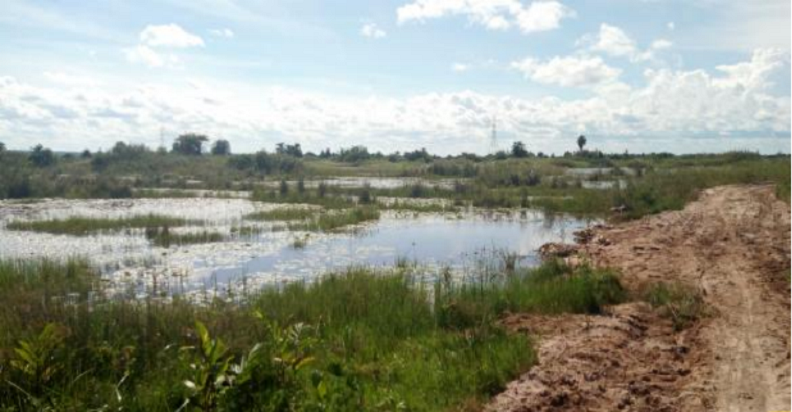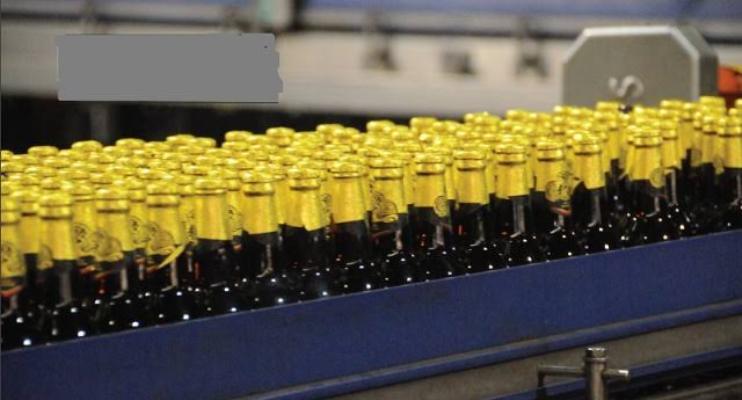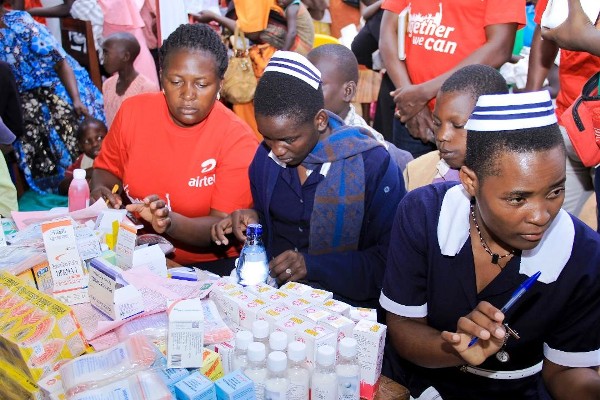Some of the flooded Lwera Sand mines
The expansion of the activities in Lwera wetland along the Kampala-Masaka highway is stirring a bitter controversy between Kalungu district leadership and the local communities.
For over a decade, the wetland has gradually been depleted due to commercial sand mining and rice growing by different investors with authorization from the government.
The local communities living in the vicinity of the wetland are feuding with Kalungu district leadership for allowing investors to expand their projects into the wetland despite the negative consequences they pose to the entire ecosystem.
James Ssempala, the Bulingo village LC I Chairperson, one of the villages located next to the rice growing project owned by Chinese firm Zhong Industries Limited, says that they are disappointed that the district is not supportive of their demands to suspend the activities in the wetland.
He says that the investor who initially cultivated 600 acres of rice is now expanding the project toward the shores of Lake Victoria yet his agricultural practices involve the use of artificial fertilizers, poisonous herbicides, and pesticides that contaminate water and land resources hence threatening the environment.
According to Ssempala, the community has continuously demanded the suspension of the projects over the grievous effects they cause to the wetland’s ecosystem, but to their disappointment, the activities are instead expanding.
Ronald Ssemanda, the Chairperson of Kamuwunga landing site in Lukaya town council observes that besides devastating nature, the activities in Lwera wetland are causing disruption of the natural water flow by blocking streams hence leading to flooding of human settlements whenever it rains.
He also argues that the extensive extraction of sand from the wetland has resulted in the repeated failure of different sections of the Kampala-Masaka highway, arguing that the situation may even worsen with the expansion of the sand mining activities in the wetland.
Ssemanda blames that district leadership and top government officials for shielding the investors despite the negative social impacts their operations are causing to the area.
According to Ssemanda, many local people who used to earn a livelihood from practicing fishing on the land sites near Lwera have lost their sources of income because of the destruction of the fish breeding area in the wetlands.
Ahmed Mukiibi Nyombi, the Kalungu LC V Chairperson observes that the district’s top leadership has no problem with the ongoing activities in Lwera, arguing that the benefits far outweigh the negative impacts cited by the community.
Nyombi has advised the local leaders to mainly focus on promoting the coexistence of the local community and the investors other than witch-hunting projects that contribute to the development of the area.
Richard Vvube, the Kalungu district Senior Environmental Officer indicates that the local community is overrating the consequences brought out about by the utilization of Lwera wetland despite the mitigation measures put in place by the current users.
He says that the technical people regularly inspect the activities in Lwera and they are convinced that they comply with the environmental impact assessments.
-URN





